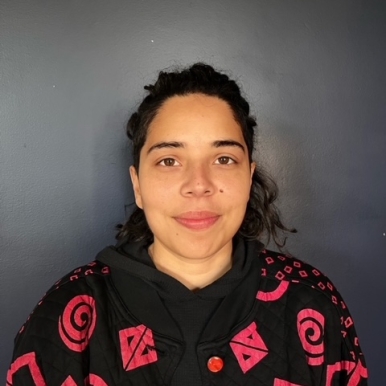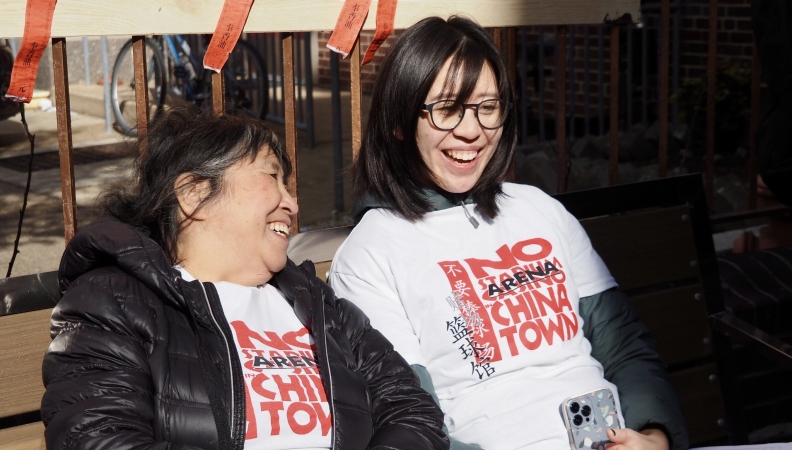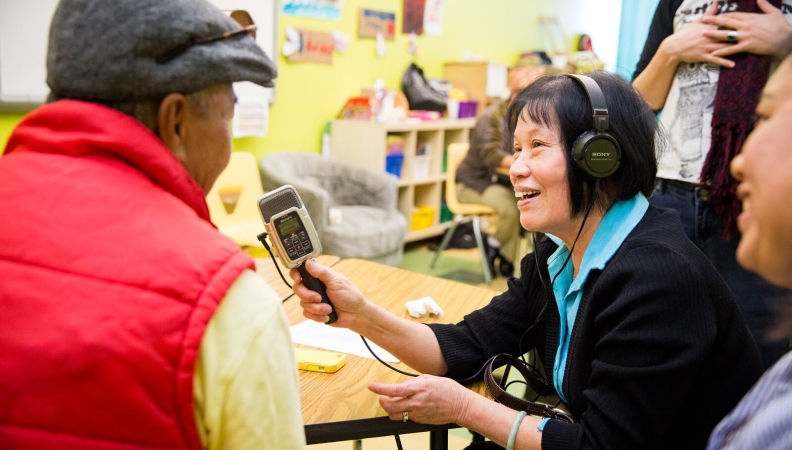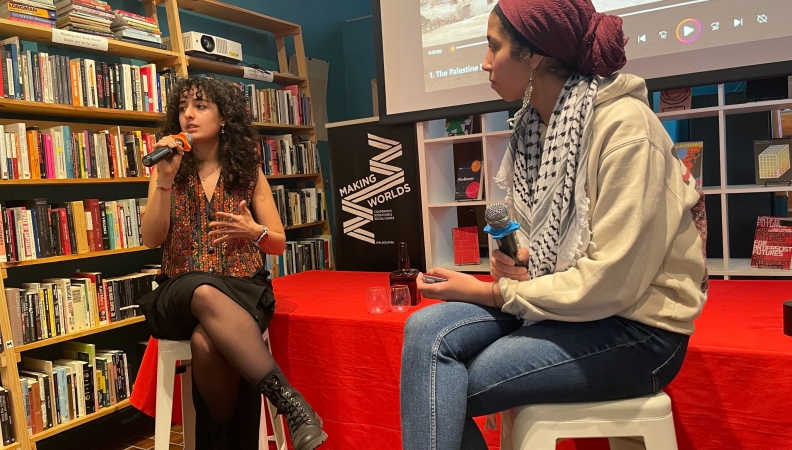An Inside Look at IPMF’s Community-led Grantmaking Process
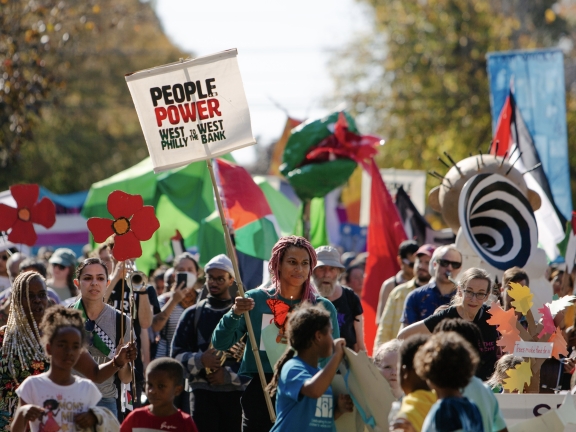
Listen In: The 2024 Community Voices Decision-Making Process
This essay includes a short audio recording of IPMF's community-led grantmaking process. With permission from the facilitators, Andreana Barefield and Nigel Charles, and the nine panelists, we recorded meetings, conversations, and deliberations to provide an inside look at this year’s Community Voices Fund decision-making process. This recording aims to guide other foundations interested in or planning to engage in community-led grantmaking and provides applicants with insights into how decisions were made. We welcome conversations about this process; reach out to us at programs@independencemedia.org.
IPMF’s Community Voices Fund began in 2020 as an open call to amplify the stories of people most affected by systemic oppression. Since then, we expanded the fund to support a range of media-making projects and strengthen community information networks. The Community Voices Fund continues to serve as one of our key ways of addressing and learning about emerging needs in the region’s media ecosystem.
What We Learned From Last Year’s Community Voices Fund
In 2023, we adopted a participatory grantmaking process for the fund where a community panel selected and made the final decision to award $800,000 in grants, without influence from IPMF staff or board. The 2023 Community Voices Fund was an overall success, especially in meeting our goals of shifting power to community members.
Of course, there were a few kinks that we wanted to address. My colleague, IPMF Program Officer Nuala Cabral, described the fund application changes in her essay last year, so I’ll focus on three lessons from last year that influenced the design of this year’s process.
In 2023, we recognized the need for a co-facilitator to ease the pressure of one person juggling so many responsibilities for three straight days of in-depth, detailed reviews.
In response, we invited two facilitators to run the process this year: Andreana Barefield and Nigel Charles. They previously led Giving Projects at Bread & Roses Community Fund. Having Andreana and Nigel worked much better than we anticipated. With two facilitators, IPMF staff took up less space in the room, and it allowed the facilitators to tag team whenever one person needed a break. As one panelist shared in their evaluation, “I can't emphasize enough how they made this complex process really approachable and welcoming. I really appreciate how much they affirmed our knowledge and experience and demonstrated trust in us that we were the right people to be making these incredibly important decisions.”
In 2023, though we had an orientation session, we didn’t make space for a comprehensive grantmaking training nor did we engage in conversations about the region’s community media landscape and how that might affect funding priorities. This was a missed opportunity to connect how the panel’s decisions would influence the evolution of the local media ecosystem.
This year, we added a grantmaking training, in addition to the orientation, and created space for panelists to get to know each other. The grantmaking training allowed the panel to take their time in thinking through important questions about what it means to evaluate someone’s work; about the inherent power dynamics and structural barriers present in traditional philanthropy and how we’re trying to counteract them; and about the strengths and opportunities of the region’s media ecosystem. For example, panelists reflected on what kinds of media projects would support their communities, and what projects were done by people outside of the community without community input. For some of the panelists, these sessions are something they’re taking with them beyond the panel. One panelist shared “The presentations and activities and teamwork were incredibly helpful–not just for the panel, but for life in general.” Another added, "It was a great experience of not only learning and growing but also a great way to be more in touch with the vision that the community is trying to develop.”
In 2023, hosting a three-day in-depth review process over Zoom, with only one facilitator, was straining. The screen fatigue was real. It also didn’t provide space for organic connections among panelists.
To counteract that strain, we held virtual meetings over the course of a week, with a day-long in-person meeting to close the reviews. In this more spacious format, we noticed that panelists were more energized and felt more connected throughout the week. “The group deliberation sessions were fun and felt really productive,” said one panelist in their review. Yet, even with this expanded period, we know to continue iterating on the timing of the process. Over half of the panelists felt that, despite the quality facilitation and the connection with other grantees, the process was long and felt rushed by the end. When we asked what we could do differently, one panelist shared, “more time to deliberate on the final selection and on deciding the amount each organization received.”
Participatory Grantmaking as a Potential Form of Organizing
This year’s Community Voices Fund deliberations showed me the power it has for organizing towards community-owned media. If done well, participatory grantmaking provides a potential for deepening movements and breaking silos. The process can strengthen cross-community networks across the region, create shared visions for change, and provide consensus skills that extend beyond grantmaking. For panelists, this was the first time they met each other, worked together, and in several cases, heard of each other’s organizations. What seeds were planted in being part of this process? In learning about dozens of incredible community media-making groups? In sharing their thoughts about transforming power or imagining liberatory futures? In collectively deciding how to subvert traditional philanthropic processes? We don’t know what impact being on the panel will have, but I have faith that this will be one of many experiences that could have ripple effects in our media ecosystem. From one panelist, “I hope we can stay in touch or find ways to work together again. I would’ve loved to learn more about what kind of work everyone was doing or moving towards in the future.”
As we revisit next year’s Community Voices Fund, we’ll take the time between now and then to explore how else we can support consensus decision making, and perhaps, how we can build upon the organizing potential of the panel.
Photo Credit: Rachael Warriner for Spiral Q
Audio Music Credit: UpBeat by Hybridas
